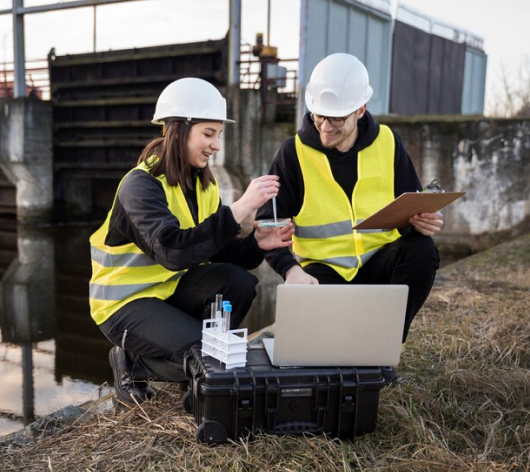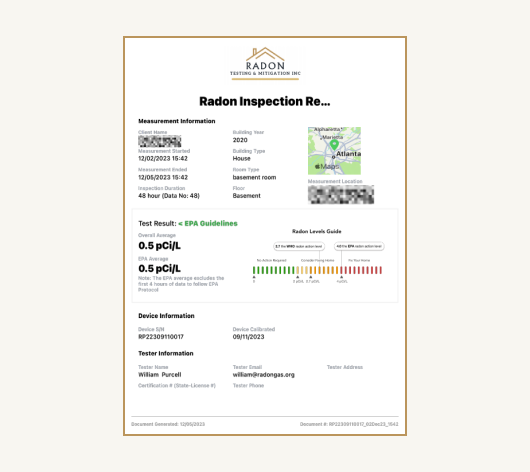
Concerned if radon gas is present in your home, or maybe you’re in the process of buying or selling a property? You’ve found the right spot! We proudly serve the Stone Mountain area and we’re happy to provide our knowledge on radon testing. We aim to keep things clear and straightforward, helping you understand the importance of radon testing and how it can protect your home and family. Radon Testing and Mitigation Inc.,is your trusted source for certified radon testing in Stone Mountain, GA for homeowners, real estate transactions, and commercial properties.

Radon exposure is particularly dangerous due to its radioactive properties and the health risks associated with prolonged inhalation.
Primary Risk: The most significant danger of radon exposure is an increased risk of lung cancer. Radon decay products can attach to lung tissue, emitting alpha particles that can damage DNA and potentially lead to cancer.
Statistical Risk: According to the Environmental Protection Agency (EPA), radon is the second leading cause of lung cancer after smoking. For non-smokers, it is the leading cause of lung cancer.
Risk Amplification in Smokers: Smokers exposed to high levels of radon are at an even greater risk of developing lung cancer compared to non-smokers.
Long-term Exposure: Chronic exposure to radon, even at lower levels, can accumulate over time, increasing the overall risk of lung cancer. The risk is proportional to the level of radon and the duration of exposure.
Latency Period: There can be a long latency period between exposure and the onset of lung cancer, often many years or even decades.
No Immediate Symptoms: Radon exposure does not cause immediate symptoms, making it particularly insidious. People may be exposed for long periods without knowing, as it is odorless, colorless, and tasteless.
Detection Only by Testing: The only way to detect radon in homes or buildings is through specialized testing, which is not always routinely done.
Seepage into Homes: Radon gas can seep into buildings from the soil through cracks in floors and walls, construction joints, and gaps around service pipes. Poorly ventilated, enclosed spaces can trap radon, leading to higher concentrations.
Regional Variability: Some geographic areas have higher natural radon levels due to the presence of uranium in the soil, increasing the risk for residents in these areas.

Regular testing of homes and workplaces, especially in high-risk areas, is crucial. Testing is relatively simple and inexpensive.
Improving ventilation and sealing entry points in basements and ground floors can help reduce radon levels indoors.
Installing radon mitigation systems in homes with high radon levels can significantly reduce exposure. These systems typically use a vent pipe and fan to draw radon from beneath the house and release it outside.
Adhering to building codes that require radon-resistant construction techniques in new buildings can prevent radon entry.
Radon Testing and Mitigation Inc. makes the testing process simple and effective:

Choosing Radon Testing and Mitigation Inc. for your radon test in Stone Mountain means you're opting for professionalism and precision. Their certified radon testing process is thorough and designed to cause minimal disruption to your daily life. For homeowners and real estate professionals alike, working with Radon Testing and Mitigation Inc. ensures that you receive a comprehensive assessment of radon levels in the property.

Whether you’re a homeowner worried about radon gas in your current home or a potential buyer looking to ensure the safety of a new property, partnering with Radon Testing and Mitigation Inc. for a certified radon test in Stone Mountain, GA is a wise choice. Our certification and expertise in radon testing means you can trust the results and take any necessary steps to mitigate high levels of radon, securing a safe and healthy home.
